Peter Sagan aims for stage wins while training for Worlds at Vuelta a Espana
Reigning world champion still not at 100 per cent after Tour crash
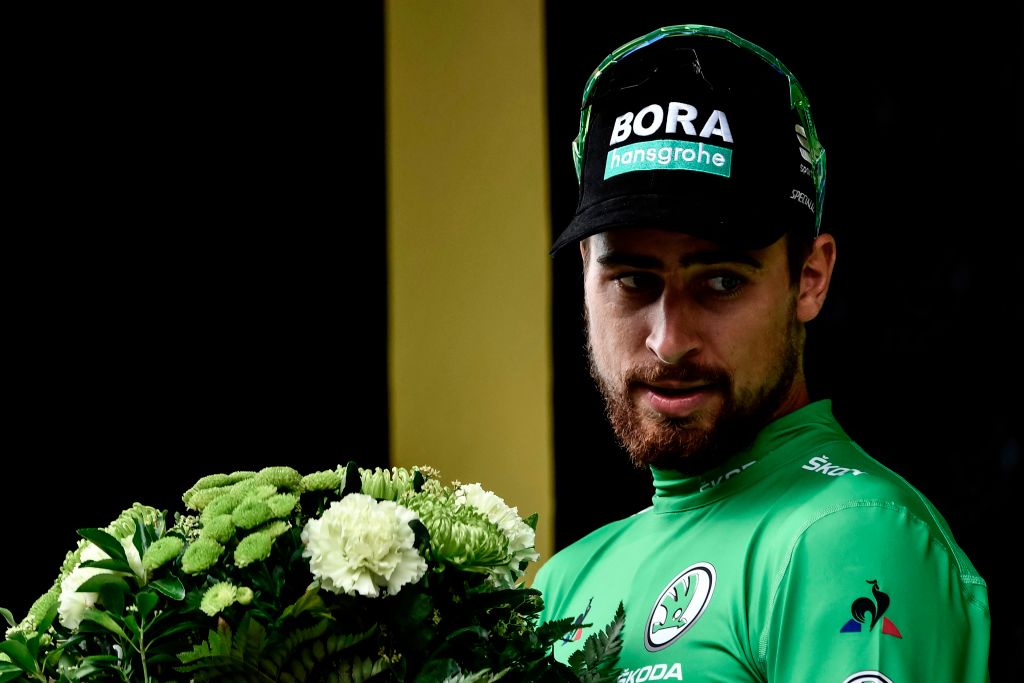
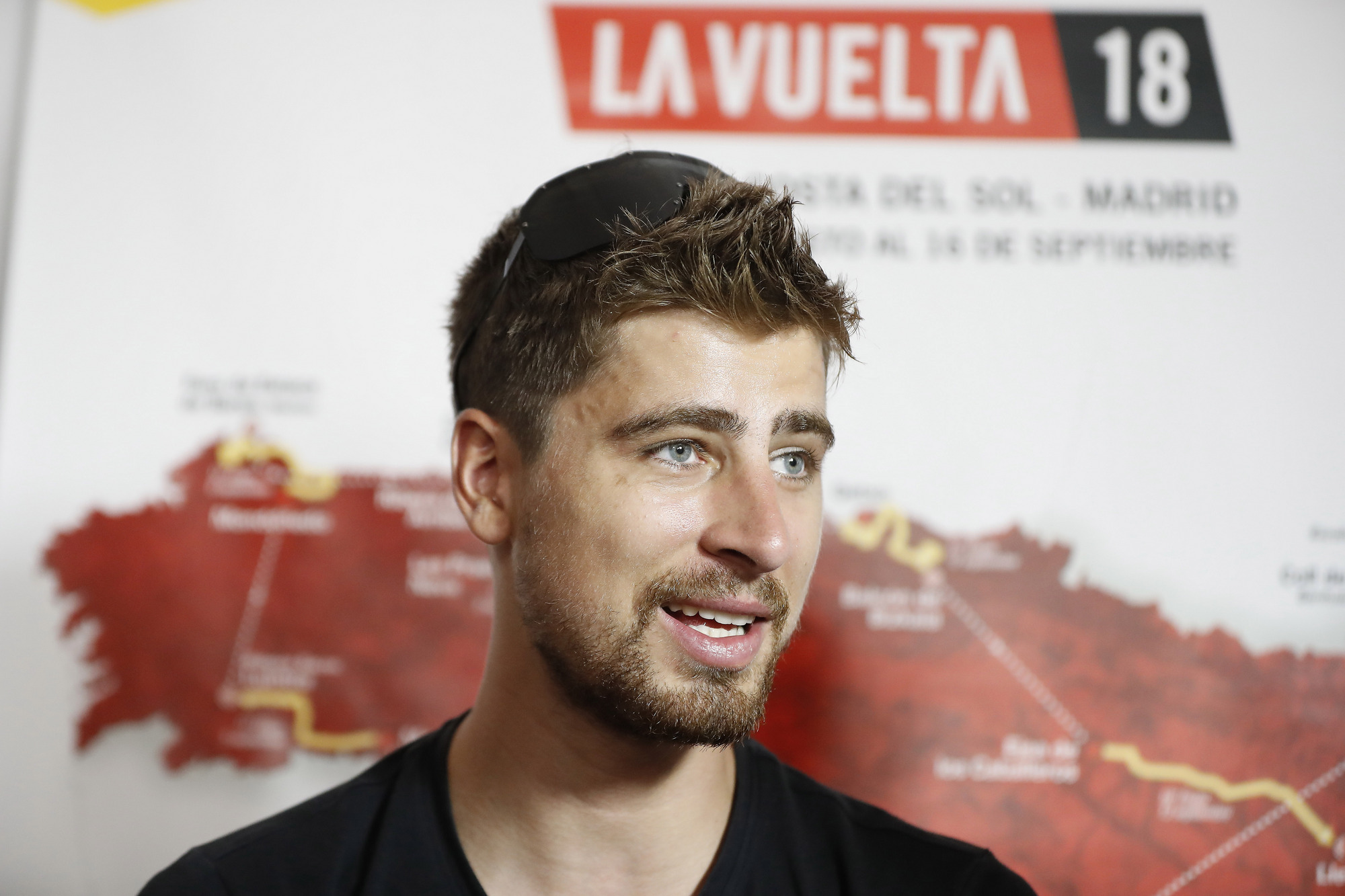
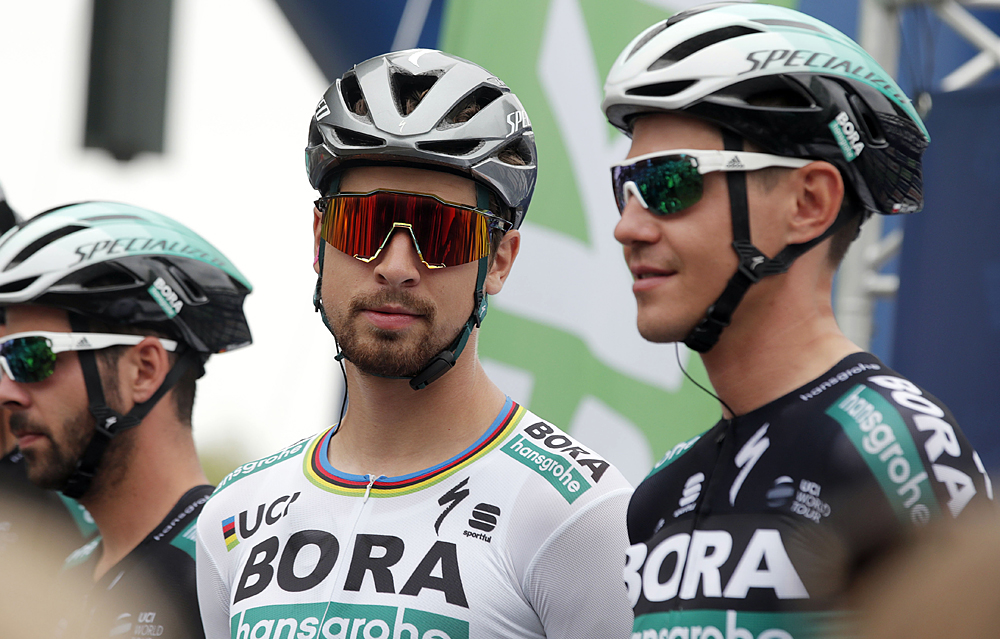
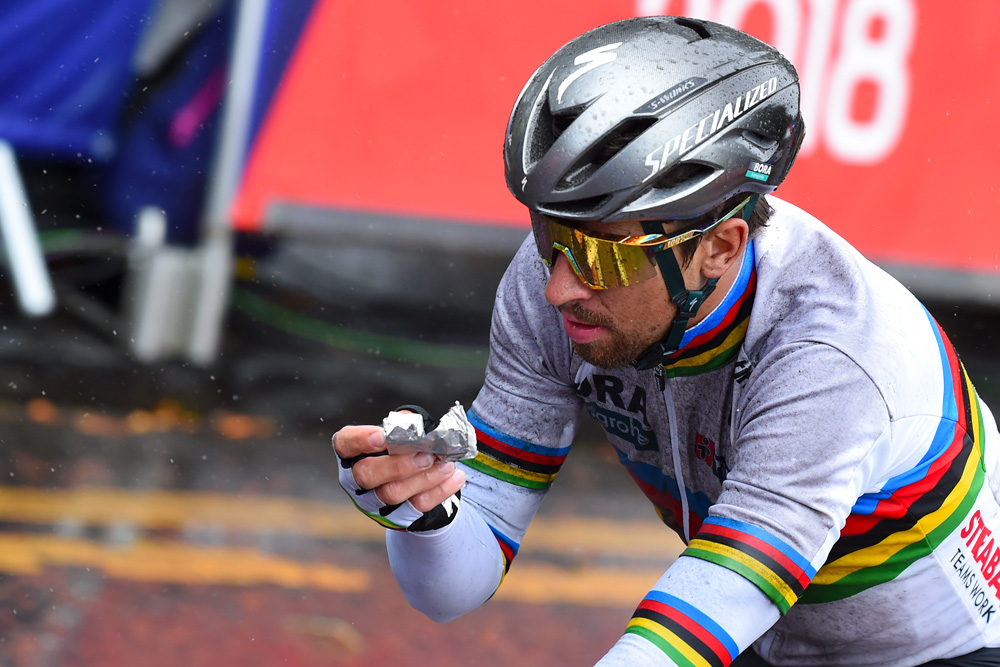
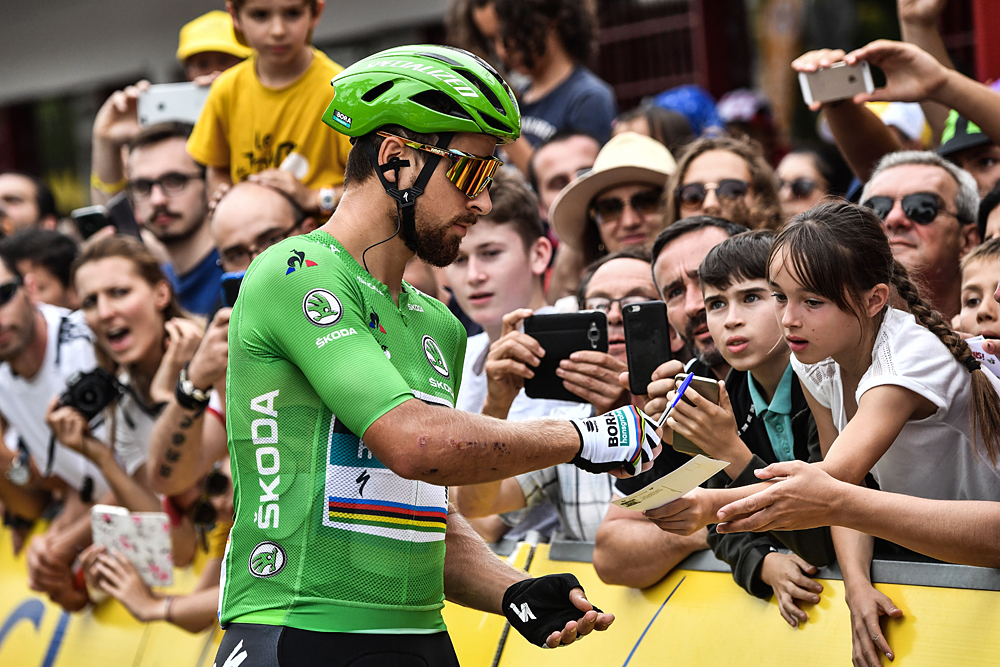
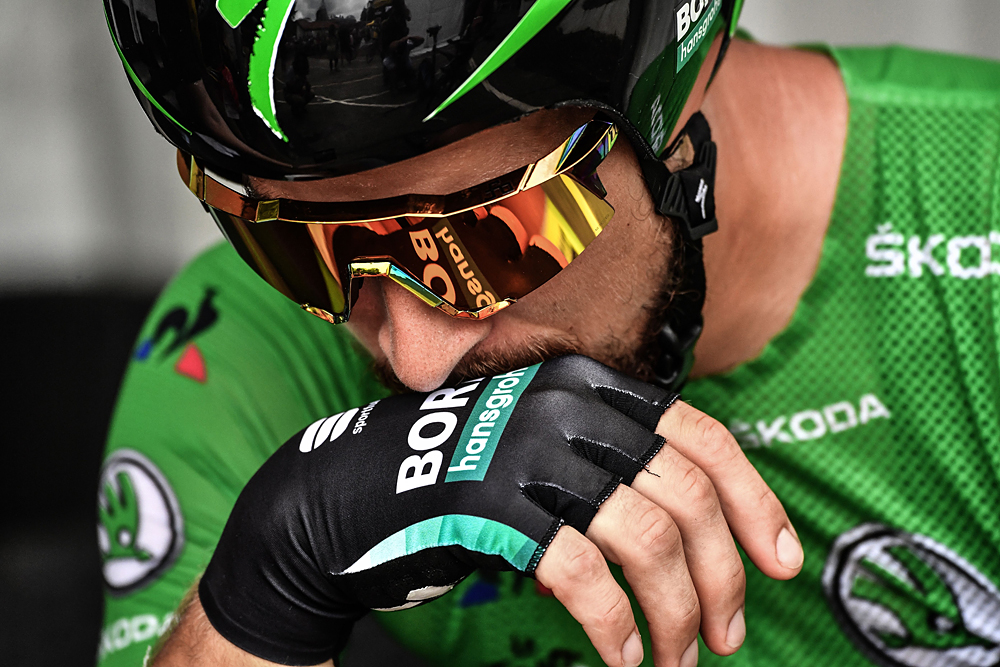
The return of Peter Sagan (Bora-Hansgrohe) to the Vuelta a España this Saturday could hardly go unnoticed given both his status as three-times world champion, and the dramatic way that he quit the Vuelta three years ago.
"Good memories and bad memories, always everything is together," was the somewhat poetic way Sagan had of summing up his recollections of the Vuelta on Thursday, a race in which he took his first-ever Grand Tour stage wins back in 2011. It's also a race that he quit in 2015, injured after colliding with an in-race motorbike.
Sagan told reporters in Malaga, where the race starts on Saturday, that he is aiming to have a good race, "and after that we will see," he said. But he also admitted that he was “not yet at 100 per cent" after crashing in the Pyrenees during the Tour de France.
Sagan's memories of the Vuelta stretch back to 2011 when, as a second year pro, he won the final stage in Madrid, as well as stages 6 and 12, He also remembered the 2014 edition when he "had a virus and could only do nine, ten or 11 days before quitting".
"Then in 2015, I won some stages, I think," said Sagan, who won stage 3 into Málaga. “And after I had a bad crash, but it happens.” He agreed, with a laugh, with one reporter's joking suggestion that it was thanks to that crash he had gone on to win in Richmond's Worlds.
Sagan's primary target this year, he said, are stage wins, with a first chance to do so coming on stage 2 to Caminito del Rey. This was initially described as the Vuelta's ninth summit finish, but now, after it was shortened in length, it has been reclassified as an 'uphill sprint' and likely to favour racers like Alejandro Valverde (Movistar), Gorka Izagirre (Bahrain-Merida), narrowly defeated on a similar uphill in Paris-Nice this spring, and Sagan himself.
Sagan, however, ruled out making an impact in the mountain stages, which he said were "more like training for me. I'm still not at 100 per cent after the Tour but it's also good for me to be here because I have my soigneur here and physiotherapist, I think that day by day it's going to be much better. I'm hoping [to be stronger as the Vuelta goes on]."
Get The Leadout Newsletter
The latest race content, interviews, features, reviews and expert buying guides, direct to your inbox!
He denied, though, that he had stopped coming to the Vuelta because of his bad crash in 2015. "Afterwards I decided to go for a different preparation and also for the team it was much better to make the [UCI WorldTour] points in Quebec and Montreal, and now I am back," he pointed out.
He was cautious of revealing whether he will make it to Madrid for a second crack at stage victory on the Paseo de la Castellana, seven years on. Sagan's last words made it abundantly clear that the shadow of the World Championships looms large over his return to Spain's Grand Tour, as well as his plans to use the Vuelta as preparation for a battle for a fourth rainbow jersey.
Asked how important it was for him to be in the Vuelta a España to train for Innsbruck, he concluded directly, "it's very important. It's much better to train here than at home, alone, right?"
The Cyclingnews podcast is brought to you in association with Prendas Ciclismo, Pinarello and Floyd's of Leadville.
Cyclingnews has compiled a bumper list of 12 riders to watch for the forthcoming Vuelta a España. Watch the video above to see who made it into our list and click here to subscribe to the Cyclingnews video channel.
Alasdair Fotheringham has been reporting on cycling since 1991. He has covered every Tour de France since 1992 bar one, as well as numerous other bike races of all shapes and sizes, ranging from the Olympic Games in 2008 to the now sadly defunct Subida a Urkiola hill climb in Spain. As well as working for Cyclingnews, he has also written for The Independent, The Guardian, ProCycling, The Express and Reuters.
